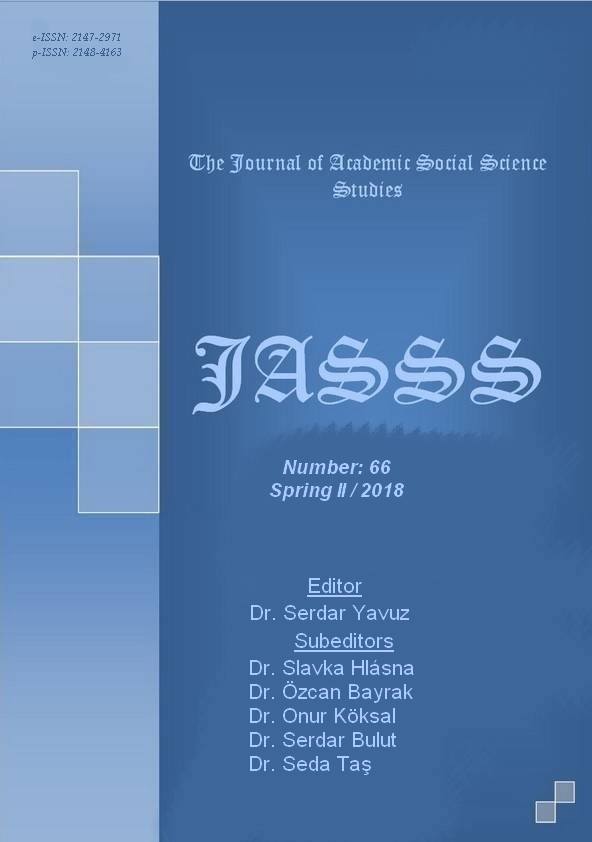Author :
Abstract
Bu araştırmanın amacı, üniversite öğrencilerinin Batı ve Türk müziği türlerine yönelik betimleyici sözel ifadelerinin mesleki müzik eğitimi alıp almama ve cinsiyet değişkenlerine göre değişip değişmediğini ortaya koymaktır. Çalışma grubu; Ondokuz Mayıs Üniversitesi’nin farklı bölümlerinde okuyan toplam 260 öğrenciden oluşmaktadır. Araştırmada veri toplama aracı olarak Batı ve Türk müzik kültürü içinde bulunan, farklı dönem ve türleri kapsayan 18 örnek eser belirlenmiştir. Bu eserler, çalışma grubuna 30 saniye dinletilmiş ve seçilen bu müziklerin, onlarda uyandırdığı betimleyici sözel ifadelerini karşılayacak olan, Kate Hevner’ın (1936) müziği betimleyici sıfatlar listesinden belirlenen 10 adet niteleme sıfatlarından birini seçmeleri istenmiştir. Araştırmadan elde edilen sonuçlara göre, üniversite öğrencilerinin Batı müziği ve Türk müziği türlerine yönelik betimleyici sözel ifadeleri, mesleki müzik eğitimi alıp almamalarına ve cinsiyetlerine göre farklılaşmadığı saptanmıştır. Ancak müzik eğitimi alan öğrencilerin almayanlara göre 13 tür müzik örneğinde daha yüksek oranda aynı sıfatı seçtikleri, mesleki müzik eğitimi almayan öğrencilerin ise alan öğrencilere göre sadece 5 tür müzik örneğinde, daha yüksek oranda aynı sıfatı seçtikleri saptanmıştır. Bir başka deyişle mesleki müzik eğitimi alan öğrenciler almayan öğrencilere göre dinletilen Batı ve Türk müziği örneklerine yönelik görüşlerinde daha ortak algı ve duygulara sahip olduğu daha benzer betimleyici sözel ifadelerde bulundukları belirlenmiştir.
Keywords
Abstract
The objective of this study is to reveal whether the descriptive verbal expression of the university students intended for the Western or Turkish music may or may not change according to the variables as having professional music education and their genders. Study group consists of 260 students attending the different divisions of the 19 May University. In this study, 18 sampling performances inclusive for the different periods and also the music genres designated as data collection tool. Those music genres (each of them) get this study group listened for 30 seconds and then they are required to choose one of the 10 descriptive adjectives determined in the list of Kate Hevner’s (1936) descriptive adjectives for music matches their descriptive verbal expression coming forefront due to those selected music genres. It is the fact that outcomes obtained indicate there is not any diffirentiation in descriptive verbal expression of the students intended for the Western and Turkish Music genres whether they have or they do not have professional music education and their genders. However, at the end it is determined that the students having music education have chose the same adjective in 13 music sampling at a higher percentage then the students do not have, on the contrary students do not have professional music education have chose the same adjective in 5 music sampling at a higher percentage then the students have. In another saying, in terms of having a more collective perceptions and emotions, using descriptive verbal expression with more similarity is observed as the students having music education carry out then the others when they listen to chosen musical titles from Western and Turkish ones.





